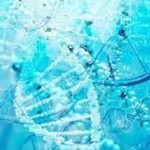by Laura Reiley: but the research was hatched out of industry funding…
New research review shows industry bias may have affected consumer behavior.
According to a new review published in the American Journal of Lifestyle Medicine this week, headlines claiming that eggs don’t raise cholesterol levels could be the result of faulty industry-funded research.
Researchers with the Physicians Committee for Responsible Medicine, an advocacy organization that promotes a plant-based diet, examined 153 studies published from 1950 to March 2019 that evaluated the effect of eggs on blood cholesterol levels. The researchers examined funding sources and whether those sources influenced study findings.
The results show that the percentage of industry-funded studies increased over time, from zero percent in the 1950s to 60 percent between 2010 and 2019, according to study author Neal Barnard, an adjunct associate professor of medicine at George Washington University and president of the Physicians Committee for Responsible Medicine.
“In recent years, the egg industry has sought to neutralize eggs’ unhealthy image as a cholesterol-raising product by funding more studies and skewing the interpretation of the results,” Barnard said.
He gives an example of a 2014 study of college freshmen at Wayne State University, a group of whom consumed two eggs at breakfast, five days a week over 14 weeks. This increased consumption was associated with a mean LDL cholesterol, what’s known as “bad” cholesterol, increase of 15 milligrams per deciliter of blood. Despite this rise in cholesterol, investigators concluded that the “additional 400 mg/day of dietary cholesterol did not negatively impact blood lipids.”
The cholesterol change did not reach statistical significance, Barnard says, because the sample size was too small.
“The correct way to report that is to say LDL rose a lot, 15 points, but we can’t rule out the small possibility of chance,” he said.
According to Pramod Khosla, one of the Wayne State study authors, while it is easy to demonize industry-funded research, there are several mechanisms in place to ensure that objective science prevails.
“Most universities, including ours, will not accept research dollars unless we have the sole right to decide publication of results independently,” Khosla said. “The sponsor has no say in this. Additionally, [there’s] the peer review process.”
Barnard cites a Dutch study at Maastricht University that gave half of the participants a beverage containing 1.5 eggs, and the other half the same beverage without the eggs. The eggs raised participants’ LDL by 9.3 points, while the other participants’ LDL rose 3.5 points.
“What they wrote was that the ‘changes in LDL is not different,’ ” Barnard says. “There’s an obvious difference, but it could have occurred by chance.”
As of publication, the Maastricht study authors had not responded to a request for comment.
Bonnie Liebman, director of nutrition for Center for Science in the Public Interest, says Barnard is correct that smaller studies are less likely to find a statistically significant difference in LDL than larger studies, so if the egg industry is funding smaller studies, it’s of little surprise that they’re less likely to find a statistically significant difference in LDL.
Liebman says that cholesterol in foods does raise LDL, and eggs are the major source of cholesterol in the diet of most people.
Several meta-analyses have concluded that egg consumption does raise cholesterol levels. According to a 2019 meta-analysis, eating an egg each day raises LDL cholesterol by about nine points. The study, published in the American Journal of Clinical Nutrition, combined the findings of 55 prior studies, finding that every 100 milligrams of added dietary cholesterol (approximately half an egg) raised LDL cholesterol levels by about 4.5 milligrams per deciliter of blood.
More than 85 percent of the studies in Barnard’s meta-analysis, whether funded by industry or not, showed that eggs have unfavorable effects on blood cholesterol. Industry-funded studies, Barnard found, were more likely to play down these findings.
“Eggs raise cholesterol, period. The science is clear,” Barnard said in a phone call. But while cholesterol warnings have circulated in the United States since at least 1961, scientific thinking on the dangers of cholesterol have evolved.
Mickey Rubin, director of the American Egg Board’s Egg Nutrition Center, says Barnard’s finding between industry-funded and non-industry-funded studies was consistent in terms of results, and increases in cholesterol are not always bad. For HDL cholesterol, or “good” cholesterol, higher levels are better.
As for the egg industry funding cholesterol research, Rubin says they are careful to uphold the integrity of the work, no matter the findings.
“Our rule when we fund research is that it’s very important to us that it’s transparent and in the hands of the researcher,” Rubin said.
With the 2020 Dietary Guidelines poised to impact what and how Americans eat, egg recommendations and advice on cholesterol hang in the balance, but Rubin says it’s unlikely cholesterol restrictions will be added.
“The science hasn’t changed on that,” Rubin said. “They’ve said it’s not a nutrient of concern.”










































